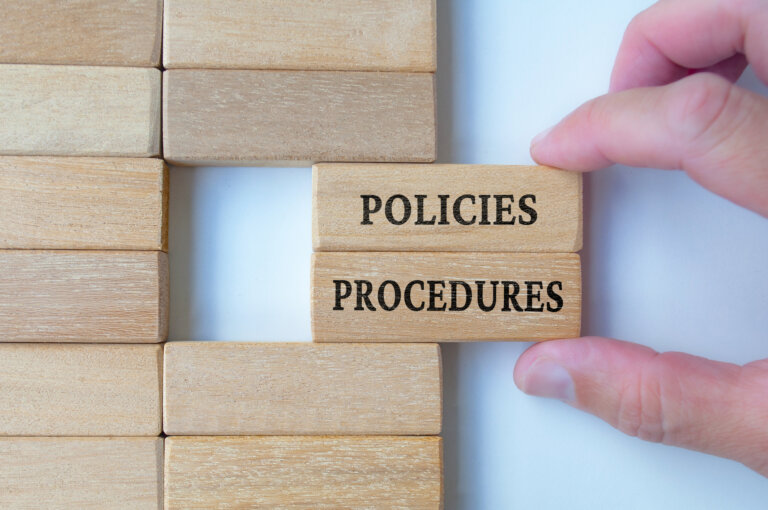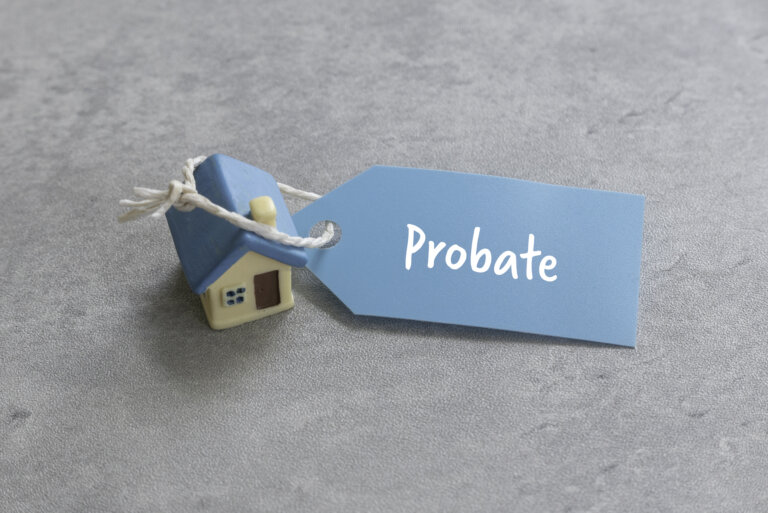When Is Probate Required in Pennsylvania?
Probate refers to the court-supervised process of winding up a deceased person’s affairs and distributing their assets to heirs and beneficiaries. Probate may involve identifying the decedent’s will if they left one. A probate court must appoint an executor or administrator to oversee the estate administration process. In probate, the executor or administrator gathers and inventories the decedent’s estate, notifies the decedent’s creditors, beneficiaries, and heirs, pays the decedent’s remaining debts, pays the decedent’s final income taxes and any applicable estate taxes, and distributes the decedent’s remaining estate assets to their beneficiaries or heirs.
Testate vs. Intestate Estates
The probate process can differ depending on whether a decedent has a testate or intestate estate. A testate estate means a decedent has left a will that directs the disposition of their estate assets. A will also allows a decedent to appoint someone to serve as the executor of their estate. An intestate estate means that a decedent’s assets do not pass via a will but rather via state intestacy laws that determine which of a decedent’s surviving family members inherit from the decedent’s estate and how much of the estate they will receive.
Even when a decedent leaves a will, they may also have an intestate estate. A partial intestate estate may occur when they have estate assets not covered by their will. A decedent who leaves a will may have intestate assets if beneficiaries they’ve named in their will predecease them and if their will does not have a residuary clause, which directs the disposition of any assets not explicitly bequeathed by the will.
Assets Subject to Probate
In most cases, assets subject to probate include all assets within a decedent’s estate upon death. However, decedents may exclude assets from their estate for probate purposes by placing them in trusts; rather than distributing them through probate, the trust distributes them per the trust document’s terms.
Other assets owned by a decedent may not go through the probate process after the decedent’s death, such as:
- Real estate or other titled property held in a joint tenancy with right of survivorship or a tenancy by the entirety: The decedent’s interest in the property gets divided evenly among the surviving owner(s) of the property.
- Bank or brokerage accounts with a transfer/pay-on-death designation: Ownership of the account or the assets in the account go to the person(s) designated by the account holder.
- Life insurance/pension/retirement account beneficiary designations: A life insurance policyholder or pension/retirement account holder can designate someone to receive the death benefits from the life insurance policy or account assets.
- Last wage: A decedent’s surviving spouse, child, parent, or sibling can receive up to $10,000 of the decedent’s unpaid wages, salary, or other compensation.
- Money in personal accounts: Surviving spouses, children, parents, or siblings can request a decedent’s financial institution release up to $10,000 of funds in the decedent’s account.
Small Estates
In Pennsylvania, small estates can bypass the traditional probate process through a streamlined process. Pennsylvania law defines “small estates” as estates of people domiciled in Pennsylvania with a gross value of personal property up to $50,000. The small estate process allows any party with an interest in the decedent’s estate to petition the court to direct the distribution of the decedent’s personal property to the party or parties entitled to inherit from the decedent under their will or state intestacy law. The petition should include:
- The decedent’s personal information
- The decedent’s will (if they left one)
- A copy of the decedent’s death certificate
- Information about the decedent’s beneficiaries or assets
- A list of the decedent’s assets
- A list of the decedent’s known creditors and debts
Any party with an interest in the estate has one year from the court’s order directing the distribution of the decedent’s personal property to petition the court to revoke its order based on an improper distribution.
Pennsylvania Probate Process

In Pennsylvania, the probate process involves multiple steps, with the exact order depending on factors such as the existence of a will and the complexity of the decedent’s estate. Here are the basic steps in the probate process.
Filing the Will and Petition for Probate
The probate process begins when a party petitions the court to open probate for the decedent’s estate and to secure the court’s approval of the will (if the decedent left one) as the decedent’s valid last will and testament.
Appointing the Executor or Administrator
After accepting the will or verifying the decedent’s passing, the court will order the appointment of the person nominated in the will to serve as the estate’s executor. Alternatively, the court may appoint another person, such as the decedent’s next of kin or the person who petitioned to probate the intestate estate, as the administrator.
Notification of Interested Parties
After receiving their appointment, an administrator or executor must notify interested parties, such as beneficiaries under the decedent’s will and the decedent’s next of kin, of the estate administration, which allows those parties to file claims or challenges to the estate administration.
Inventory and Appraisal of Estate Assets
An administrator or executor must gather, inventory, and appraise all estate assets; they must file an estate inventory within nine months of the decedent’s death.
Paying Debts and Expenses
Before the administrator/executor can distribute inheritance to beneficiaries/heirs, they must pay the decedent’s outstanding debts. The estate must also cover the estate administration costs, such as legal/accounting fees or maintenance costs for property in the estate.
Filing Tax Returns
Administrators/executors must file tax returns on the estate’s behalf, including the decedent’s final income tax return and estate tax returns.
Distributing Assets to Beneficiaries
After paying estate liabilities, estate administration expenses, and taxes, the administrator/executor can distribute any remaining estate assets to beneficiaries/heirs, providing them with an accounting of the estate’s transactions (including distributions of inheritances).
Closing the Estate
Once an administrator/executor has distributed all estate assets to creditors and beneficiaries/heirs, they can file a final accounting with the court and request to close the estate. If the court approves the accounting, it will issue an order closing the estate and discharging the administrator/executor.
Probate Deadlines in PA

Pennsylvania imposes various deadlines on the probate process. Some of the critical dates for families to remember include:
- A decedent’s loved one must petition for letters testamentary/administration within 21 years of the decedent’s death unless a petitioner can demonstrate good cause for the failure to petition within 21 years.
- An administrator/executor must send notice of the estate to interested persons within three months of their appointment. Interested persons may include named beneficiaries in the decedent’s will, the decedent’s next of kin (regardless of whether the will names them as beneficiaries) or the next of kin’s parent/guardian, and the decedent’s creditors. After serving notice, the administrator/executor has ten days to file a certification with the register of wills.
- Any party seeking to challenge the acceptance of a will to probate must do so within one year of the court’s decree, although the court can limit the deadline to three months.
- The administrator/executor must file an inheritance tax return within nine months of the decedent’s death.
- A party has one year after the court’s issuance of a decree of distribution to heirs/beneficiaries to petition to revoke the decree based on an improper distribution.
Alternatives to Probate in Pennsylvania
Probate can become an expensive, time-consuming process, especially when a decedent has a complex or high-value estate. Probate can involve costs such as attorney’s fees, court filing fees, and accountant fees. Probate may also force beneficiaries/heirs to wait to receive their inheritances. As a result, many individuals and families undertake estate planning that utilizes probate avoidance strategies to pass family wealth outside the probate process.
Probate Avoidance Strategies
Commonly used probate avoidance strategies include:
- Trusts: Living trusts—that is, trusts that a person creates during their lifetime—allow individuals to pass wealth onto loved ones outside of probate by placing that wealth into a trust. Because the trust owns the assets, they do not go through probate. Instead, a trust distributes income and principal from its assets per the terms of the trust document drafted by the person who created the trust.
- Joint tenancies: Individuals may hold real estate in a joint tenancy or tenancy by the entirety, which allows co-owners to inherit the individual’s interest automatically upon their death rather than passing the individual’s interest through probate.
- Beneficiary designations: By making beneficiary or transfer/pay-on-death designations, individuals can avoid probating benefits from their life insurance policy or assets in bank, brokerage, or retirement accounts.
Frequently Asked Questions
Here are the answers to some of the questions that families commonly have about the probate process in Pennsylvania.
What Happens Without a Will?
When a person passes away without a will, the assets in their estate go to their next of kin as identified by Pennsylvania’s intestacy laws. The intestacy laws determine which of a decedent’s surviving family members get to inherit from the decedent’s estate (or any portion of the estate not distributed by the decedent’s will) and what share of the intestate estate each heir will receive. Under Pennsylvania law, surviving family members who can inherit from the intestate estate (in order of priority) include a decedent’s spouse, the decedent’s descendants (children, grandchildren), the decedent’s parents, the decedent’s siblings or their siblings’ descendants, the decedent’s grandparents, or the decedent’s aunts/uncles and their descendants. If a decedent leaves no surviving family members, their estate goes to the state through the doctrine of escheatment.
What Happens After an Estate Is Closed?

Once the court authorizes the closure of an estate, it will discharge the administrator/executor from their role, and the estate’s legal existence will cease. However, an administrator/executor may revive an estate if a party brings a claim against the estate or if a party discovers undistributed estate assets.
What Happens When You Miss Probate Deadlines?
Missing the various deadlines in the probate process can lead to multiple complications for administrators/executors or the heirs/beneficiaries of the estate, including:
- Delays in the distribution of assets to heirs/beneficiaries
- Waiver of the administrator’s/executor’s appointment
- Financial penalties, such as fines/fees from unpaid estate taxes
- Increased risk of legal disputes, such as will contests or breach of fiduciary claims filed by beneficiaries/heirs against the administrator/executor
When to Hire a Probate Attorney
Your family may need a probate attorney when your loved one has left a non-small estate or if their estate has complex assets, such as real estate. A probate attorney can assist an executor or administrator through the traditional probate process, which can involve multiple court hearings, mandatory court filings, and potentially complex legal issues, especially if the probate process consists of a will contest or creditor claims.
Executor’s Commission
A probate lawyer can also help an administrator or executor evaluate the appropriateness of taking an executor’s commission. Sometimes, an administrator/executor can receive compensation from an estate for their services in administering the estate. Although an executor’s commission may seem reasonable when a professional advisor such as a lawyer or accountant serves as administrator/executor, an administrator/executor who takes a commission when they also inherit from the estate may raise questions or disputes from creditors or other heirs/beneficiaries. A probate attorney can advise administrators/executors seeking compensation for their services to the estate.
Tips for Navigating the Probate Process in Pennsylvania
Families who lose a loved one can help make the probate process less stressful by following practical best practices, such as:
- Secure your loved one’s will: After your loved one passes away, locate and secure their will, as you must submit the original will to the court. If you cannot find your loved one’s will, you can contact their legal counsel or conduct a will search in their safety deposit box(es).
- Gather your loved one’s financial records: Having copies of records such as deeds, titles, and bank/brokerage/retirement account statements can help you more easily inventory your loved one’s estate.
- Seek help from professional advisors: Family members appointed as administrators or executors can make the probate process less stressful by working with experienced advisors, such as probate attorneys who can help address legal issues that arise or accountants who can help with recordkeeping and filing taxes for the estate.
- Keep open lines of communication: Administrators/executors can reduce anxiety and stress for all parties involved in the probate process by regularly communicating with beneficiaries/heirs or creditors to keep them updated on the progress of the estate’s administration.
Contact Our Pennsylvania Attorneys Today
When a loved one passes away, an experienced probate lawyer can help your family navigate the probate process in Pennsylvania. Contact Jones, Gregg, Creehan & Gerace today for an initial consultation with our probate attorneys to learn more about the probate process and discuss how we can assist you.

